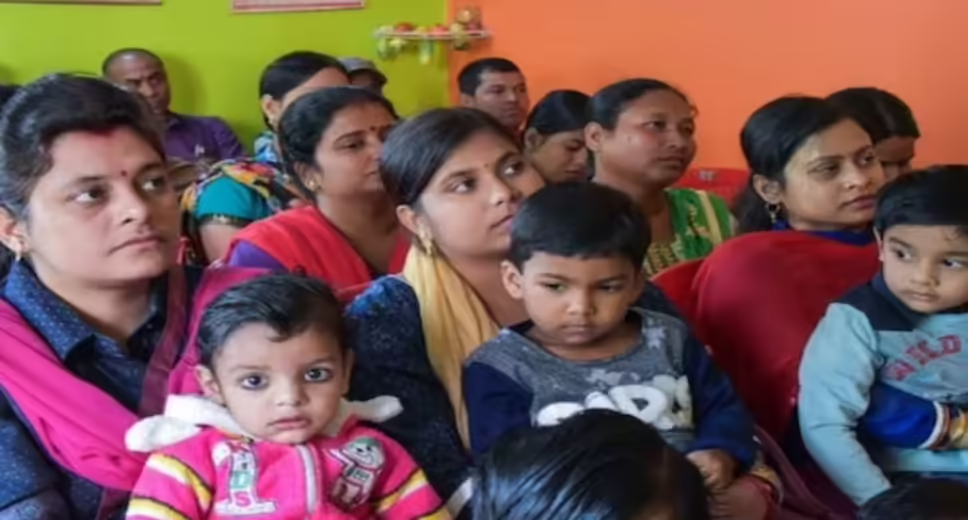Early Childhood Care & Education Priority For Anganwadi Centres: WCD Minister Smriti Irani

The Indian central government, under the leadership of Prime Minister Narendra Modi, has announced plans to prioritize early childhood care and education in 2023. The Women and Child Development Minister, Smriti Irani, has urged 14 lakh anganwadi centres to focus on this issue, in line with the "Poshan Bhi, Padhai Bhi" slogan that was announced last year in September. To achieve this goal, the anganwadi centres will be re-imagined and re-calibrated, with an emphasis on the nutritional needs of both children and mothers. The government is prioritizing early learning for children under the age of 6, particularly those under 3 years old, as this is crucial for a child's development.
In recent years, the government has prioritized early learning over nutrition in its integrated approaches. The government plans to reshape anganwadis and pre-schools to provide early learning access, particularly for children from socially and educationally backward communities. To address the issue, a 22-member high-level task force was set up by Smriti Irani, chaired by former IAS officer Sanjay Kaul. The task force has submitted its findings and recommendations, which are now under consideration by the ministry.
The task force has identified two emerging issues in the early education and care of children: the shift of young children into private pre-schools and under-age children being admitted to Class 1 in a few states. Parents feel that the quality of education and other services provided in anganwadis is inferior to that of private nursery schools, leading them to shift towards private educational institutions that offer low-quality education.
As part of its recommendations, the task force calls for a mission-mode approach to rebrand anganwadis, including upgrading infrastructure, ECCE materials, nutritional aspects, leveraging MGNREGS funds, expanding timings, setting up crèches and day care services, and providing play equipment. The task force further suggests involving institutions like panchayat raj institutions, women's self-help groups, local non-government organizations, and college volunteers to improve implementation.
The task force chaired by Sanjay Kaul recommends that 70,000 anganwadi centres in India should be upgraded as anganwadi-cum-crèches in the first phase. A common curriculum should be developed across different anganwadi models, with an emphasis on education in the child's mother tongue. The committee has asked for Rs 9,800 crore to fulfill this task. The National Education Policy 2020 notes that quality early childhood care and education is not delivered to crores of Indian children, and the government has therefore focused on Early Childhood Care and Education (ECCE) in the policy. The policy emphasizes that a major portion of a child's brain development occurs before the age of 6 years and therefore emphasizes foundational literacy and numeracy.
